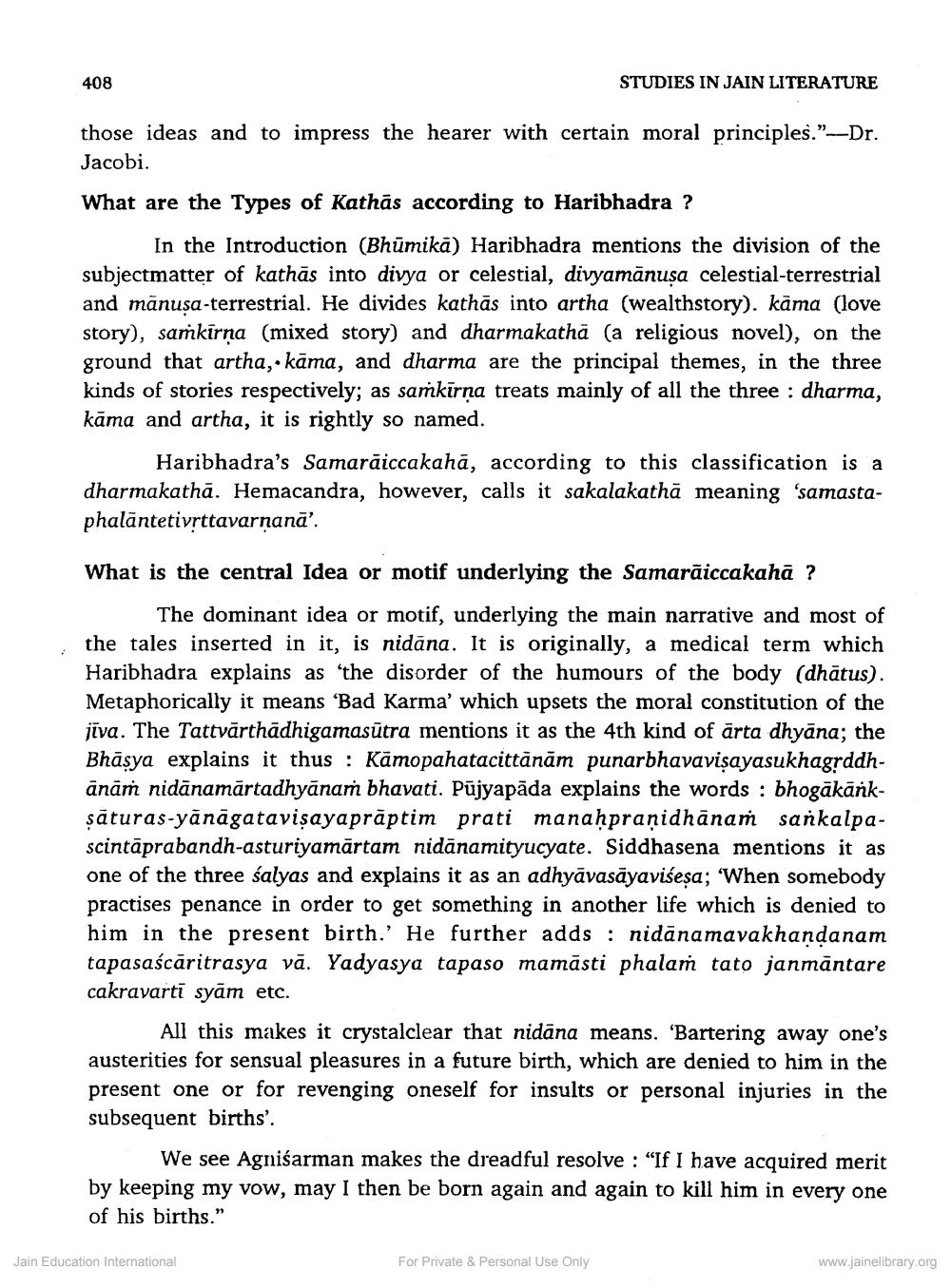________________ 408 STUDIES IN JAIN LITERATURE those ideas and to impress the hearer with certain moral principles."-Dr. Jacobi. What are the Types of Kathas according to Haribhadra ? In the Introduction (Bhumika) Haribhadra mentions the division of the subjectmatter of kathas into divya or celestial, divyamanusa celestial-terrestrial and manusa-terrestrial. He divides kathas into artha (wealthstory). kama (love story), sarkirna (mixed story) and dharmakatha (a religious novel), on the ground that artha,.kama, and dharma are the principal themes, in the three kinds of stories respectively; as samkirna treats mainly of all the three : dharma, kama and artha, it is rightly so named. Haribhadra's Samaraiccakaha, according to this classification is a dharmakatha. Hemacandra, however, calls it sakalakatha meaning 'samastaphalantetivsttavarnana'. What is the central Idea or motif underlying the Samaraiccakaha ? The dominant idea or motif, underlying the main narrative and most of the tales inserted in it, is nidana. It is originally, a medical term which Haribhadra explains as 'the disorder of the humours of the body (dhatus). Metaphorically it means 'Bad Karma' which upsets the moral constitution of the jiva. The Tattvarthadhigamasutra mentions it as the 4th kind of arta dhyana; the Bhasya explains it thus : Kamopahatacittanam punarbhavavisayasukhagrddhanam nidanamartadhyanam bhavati. Pujyapada explains the words : bhogakanksaturas-yanagatavisayapraptim prati manahpranidhanam sankalpascintaprabandh-asturiyamartam nidanamityucyate. Siddhasena mentions it as one of the three salyas and explains it as an adhyavasayavisesa; "When somebody practises penance in order to get something in another life which is denied to him in the present birth.' He further adds : nidanamavakhandanam tapasascaritrasya va. Yadyasya tapaso mamasti phalam tato janmantare cakravarti syam etc. All this makes it crystalclear that nidana means. 'Bartering away one's austerities for sensual pleasures in a future birth, which are denied to him in the present one or for revenging oneself for insults or personal injuries in the subsequent births'. We see Agnisarman makes the dreadful resolve : "If I have acquired merit by keeping my vow, may I then be born again and again to kill him in every one of his births." Jain Education International For Private & Personal Use Only www.jainelibrary.org




